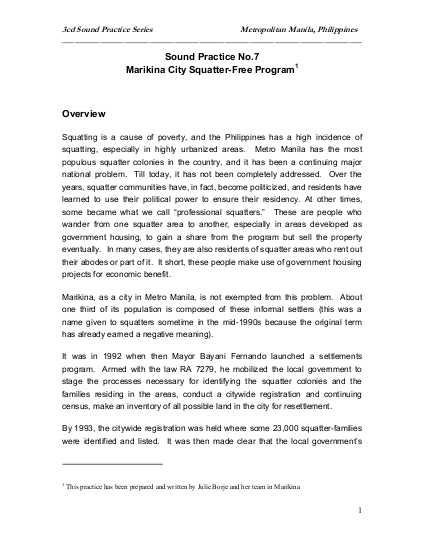
Squatting is a cause of poverty, and the Philippines has a high incidence of squatting, especially in highly urbanized areas. Metro Manila has the most populous squatter colonies in the country, and it has been a continuing major national problem. Till today, it has not been completely addressed. Over the years, squatter communities have, in fact, become politicized, and residents have learned to use their political power to ensure their residency. At other times, some became what we call “professional squatters.” These are people who wander from one squatter area to another, especially in areas developed as government housing, to gain a share from the program but sell the property eventually. In many cases, they are also residents of squatter areas who rent out their abodes or part of it. It short, these people make use of government housing projects for economic benefit. Marikina, as a city in Metro Manila, is not exempted from this problem. About one third of its population is composed of these informal settlers (this was a name given to squatters sometime in the mid-1990s because the original term has already earned a negative meaning).
Resource collections
- Topics
- UN Habitat - Urban Response Collection
- Urban Response - Urban Crisis Preparedness and Risk Reduction
- Urban Response Collection - Community Engagement and Social Cohesion
- Urban Response Collection - Economic Recovery
- Urban Response Collection - Environment and Climate Change
- Urban Response Collection - Housing, Land and Property
- Urban Response Collection - Urban Crisis Response, Recovery and Reconstruction
- Urban Response Collection - Urban Resilience
